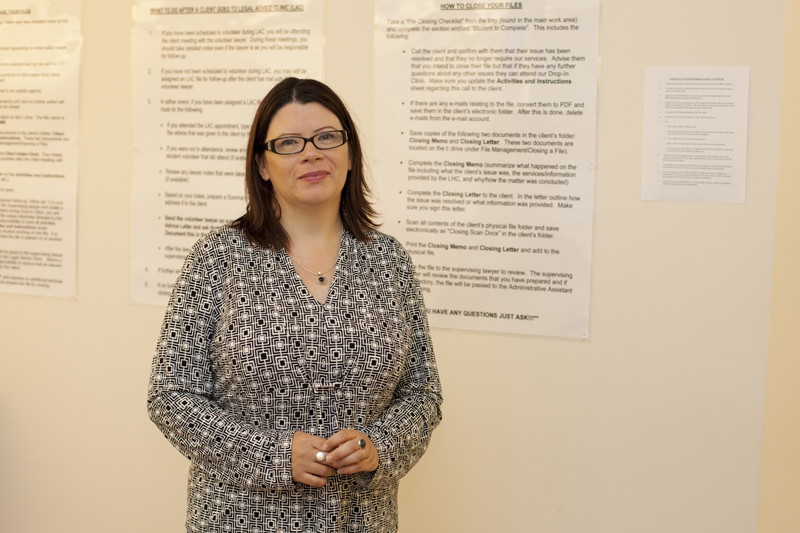The restraining chains of justice
How organizations are trying to fill the gaps of Manitoba’s justice system
With only a marginal demographic qualifying for legal aid in Manitoba, it has become imperative for individuals seeking justice to rely on third party organizations.
Though provincial qualification for free legal aid is largely determined on a case by case basis, some guidelines do exist. Generally, an individual must generate no more than $14,000 in gross household income to qualify. For each additional family member, approximately $4,000 is added to this qualification sum.
However, even if one does qualify, legal aid may not necessarily prove helpful.
Dina Brier of Legal Help Centre, an organization dedicated to increasing access to the legal and social service system for disadvantaged community members, contends Legal Aid Manitoba hardly encompasses all the needs of potential litigants.
“There is a very limited amount of cases they will take,” she said.
Indeed, Manitoba Legal Aid will not cover litigation pertaining to real estate transactions, wills and estates, corporate or commercial matters, civil suits and adoptions.
According to Brier, Legal Help Centre exists, in part, to help individuals deal with these justice issues without investing in costly legal fees.
“If there is a void in accessibility to justice or social services, that is where we step in,” she said. “A lot of community members can’t afford access to justice so we provide them information and tools on how to go about representing themselves.”
Allison Fenske, a lawyer and an instructor of a Canadian Legal Systems course at the University of Winnipeg, also regards Legal Aid as a limited resource.
“People who need access to the civil system can’t have it all through Legal Aid,” she said. “Their avenues for funded legal assistance are quite limited and so a number of people have to pursue claims as self-proclaimed litigants.”
Fenske also notes that although organizations like Legal Help Centre perform an admirable feat, they hardly fill the large gaps left by a lack of Legal Aid funding.
“We can’t rely on Legal Help Centre - it is stacked by volunteer lawyers,” she said. “We can’t rely on volunteerism to fill justice gaps, the government has to step in.”
Brier also believes Legal Help Centre and similar organizations do not supply a total solution, adding the provincial and federal governments need to be more involved.
“Access to justice should be a priority at all levels of government,” she said. “Legal clinics need additional government funding to provide assistance to marginalized people but there has been so much cutting that organizations like ours have become necessary.”
Lack of justice accessibility leads to a fragmented social system, adds Fenske.
“When you can’t access the system, that is one less tool for having people live up to social standards that are collectively set,” she said. “It goes beyond a jurisdiction - people expect things from fellow citizens and if you can’t access justice then that is one less tool for holding everything together.”
While Legal Help Centre focuses on aiding individuals in their search for justice, Public Interest Law Centre addresses systemic issues affecting broad groups of people. In essence, the centre uses litigation as a tool for creating a fairer justice system.
Byron Williams of Public Interest Law Centre said the organization means to challenge current laws in order to do this.
“We use the legal systems to overturn existing laws,” he said. “For example, right now we are working on the city’s panhandler laws, trying to make them more fair.”
Currently, panhandlers in Winnipeg can be litigated for as little as holding a panhandling sign.
Williams and his firm are representing clients who believe being penalized for non-violent, non-aggressive panhandling is unlawful.
Published in Volume 66, Number 7 of The Uniter (October 12, 2011)








